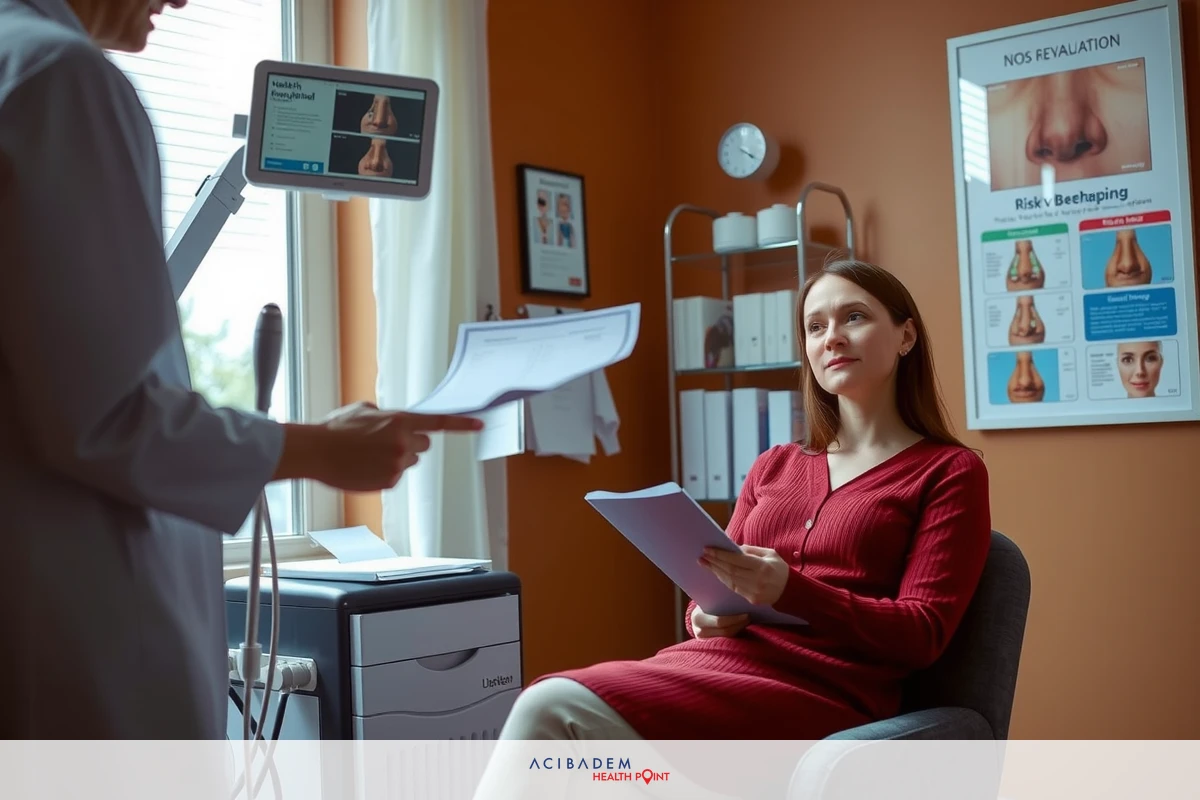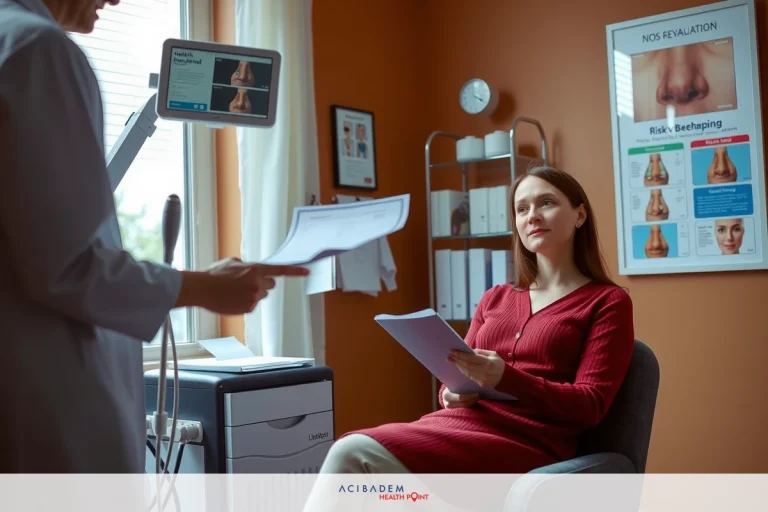How Will My Doctor Decide if I Need a Rhinoplasty?
How Will My Doctor Decide if I Need a Rhinoplasty? Rhinoplasty, nose reshaping surgery, comes into play when there is a desire or need to alter the nose’s shape or function. This decision isn’t one made lightly; it requires careful consideration and collaboration between patient and doctor. The first step in this process involves an initial consultation where your doctor takes time to understand your goals, concerns and evaluate your nose.
Following this preliminary meeting is the medical evaluation phase. Here, doctors assess not only the nasal structure but also breathing functionality and overall health status. This comprehensive assessment may encompass physical examinations, imaging tests alongside reviewing your medical history.
The last piece of this jigsaw puzzle is discussing feasible options post-evaluation. Doctors explain potential benefits against risks associated with rhinoplasty—ensuring patients have all necessary information at their disposal before making their decision.
Initial Consultation
The initial consultation serves as the cornerstone of your rhinoplasty journey. Here, you engage in an open dialogue with your doctor, expressing your aspirations and apprehensions about nose surgery. This stage is all about sharing; whether it’s aesthetic goals or functional concerns, every bit of information can be invaluable in decision-making.
During this meeting, a thorough evaluation of your nasal structure takes place. Your doctor examines the proportions of your nose relative to other facial features, its symmetry and overall shape. Skin quality on overlying the nose can also play a crucial role in determining suitable surgical options for rhinoplasty.
Simultaneously, any breathing issues linked to structural irregularities like deviated septum are noted down carefully. Functional problems often go hand-in-hand with cosmetic issues when it comes to rhinoplasty cases. Therefore, addressing these aspects holistically during the initial consultation paves the way for successful nose surgery outcomes later on.
Remember that communication plays an integral role at this juncture – feel free to voice out doubts or queries without hesitation. Being transparent about medical history is equally important as it can influence surgical feasibility and post-operative recovery expectations significantly.
Medical Evaluation
The medical evaluation stage is of paramount importance in the rhinoplasty decisionmaking process. It’s not

merely about examining your nose; it encompasses a comprehensive review of your overall health status too. Your doctor, equipped with their keen eye and professional experience, assesses every aspect pertinent to this surgery.
Starting off with physical examinations, these include studying nasal structure minutiae – the size, shape and angle of your nose bridge or nostrils for instance. An inspection inside your nose might reveal structural anomalies contributing to breathing difficulties or other issues impacting everyday life quality. In such cases, addressing these functional problems during rhinoplasty becomes an integral part of the surgical plan.
On top of physical evaluations come imaging tests like X-rays or CT scans. These allow doctors a peek into the internal structures hidden beneath skin and cartilage layers providing valuable insights regarding what needs rectification through surgery. They also form useful benchmarks for comparison post-surgery.
Our bodies are complex systems where one component could influence another in ways we can’t always predict accurately. Thus understanding general health conditions is crucial before any surgical intervention including rhinoplasty. A careful review of past medical history helps identify potential risks that may complicate surgery or recovery later on.
In essence, medical evaluation isn’t just about zeroing down on whether you need a rhinoplasty but ensuring if you’re medically fit to undergo one safely. This meticulous analysis by your doctor is central to tailoring a solution that aligns best with patientspecific needs while prioritizing safety at all times.
Discussion of Options
The discussion of options is a vital phase leading up to the decision on rhinoplasty. It’s at this juncture that you get an opportunity to explore all potential routes available for your case. Your doctor, armed with insights from the initial consultation and medical evaluation, will guide you through various possibilities.
It isn’t just about listing out surgical techniques or procedures; it goes deeper into understanding how each option aligns with your desired goals—both aesthetic and functional—and what are their potential outcomes. For instance, there could be nonsurgical alternatives like fillers that might help achieve some cosmetic improvements without undergoing full-fledged surgery. Or perhaps a combination approach may best address both structural issues affecting breathing and desired shape alterations.
Alongside exploring these options, another key aspect discussed in detail is the benefits against risks associated with each choice. Every surgical intervention carries its inherent set of pros and cons—rhinoplasty being no different. While it can significantly improve nose shape or correct structural anomalies causing breathing troubles, there are also considerations like recovery time or possible complications to weigh in.
Understanding these facets thoroughly helps build realistic expectations around surgery outcomes—an essential element contributing towards patient satisfaction post-rhinoplasty. Additionally, during this interaction session with your doctor don’t shy away from expressing any concerns or questions cropping up in your mind—it’s critical they’re addressed comprehensively before moving forward onto scheduling the nose surgery procedure.
Frequently Asked Questions
How long does the initial consultation usually take?
The duration may vary but typically, you should anticipate around an hour. This gives enough time for a thorough evaluation and discussion without feeling rushed.
Does undergoing a medical evaluation mean I am committed to having surgery?
Not at all. The purpose of the medical evaluation is to understand your health status and nose structure better—it does not imply any commitment towards proceeding with rhinoplasty.
What if I don't fully understand some surgical options discussed during our meeting?
It's completely normal not to grasp everything in one sitting, especially when it comes to complex medical information. Don’t hesitate to ask your doctor for clarifications or request another session if needed.
Are there risks associated with rhinoplasty that I should be aware of beforehand?
Yes, like any surgical procedure, rhinoplasty carries potential risks such as bleeding, infection or reaction to anesthesia. Your doctor will discuss these in detail during your discussions on available options.











